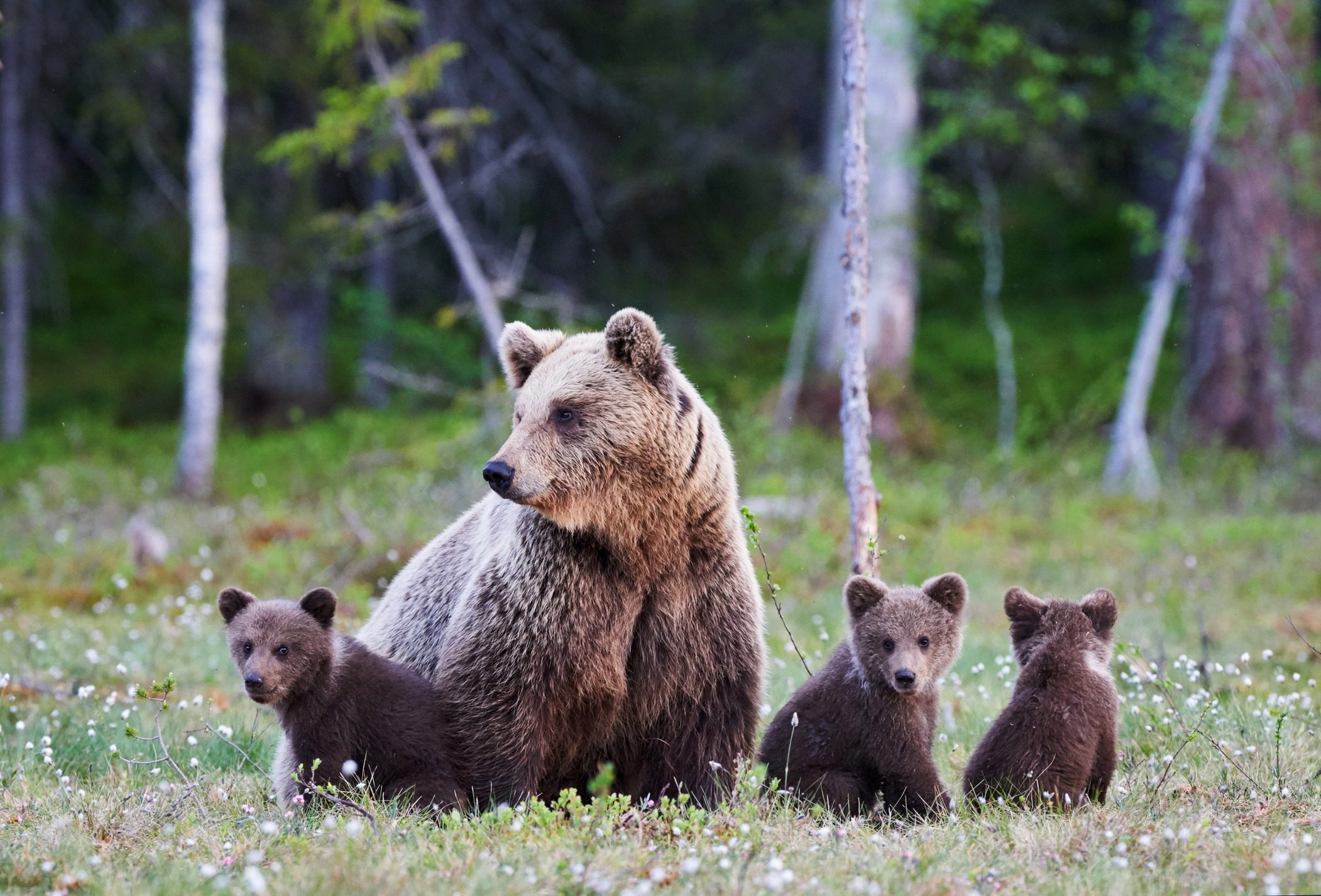
The Russian people have a long and complicated history with their ursine neighbours. In today’s blog post, learn some bear-y useful phrases to impress your Russian-speaking friends.
There’s a reason The Revenant performed so well at the box office, and not all of that was down to Leonardo DiCaprio’s Oscar-winning performance: people love a good survival tale. So when a news report came out of Russia saying that a man had been found, alive, in a bear den, newsrooms across the globe were quick to jump on the story. Supposedly, he had been attacked by a bear and dragged back to its den, had survived there for a month, and had been rescued when hunting dogs found him.
Supposedly.
As much as people enjoyed the story—a video showing the alleged bear-attack victim went viral—no one was that surprised when it turned out to be fake. Of course, that suspension of disbelief wouldn’t have lasted a minute in a country like the UK, where bears went extinct around 1,500 years ago.
However, there are almost 70,000 bears living across the area that used to be the Soviet Union and with the Russian Bear having been a widespread symbol of the country since the sixteenth century, it would seem as though Russians have a closer relationship with the animal than most parts of the rest of the world.
This is also reflected in the Russian language. Any language has idioms and sayings, and these can even go deeper than that—an idiom is an extension of culture, too, which is why you might hear an American say they have to get something done in a New York minute, or that they’re batting a thousand, but you’re unlikely to ever hear these phrases from a British or Australian English-speaker.
Since these idioms relate to common ideas and experiences, it makes sense that Russian has plenty of them referring to—you guessed it—bears. Here are six common ones and make sure you check out our social media for one more, which also contains a wolf!
Си́льный как медве́дь
Literally translated, this means ‘as strong as a bear’. So, in English, we might say ‘as strong as a horse’ or ‘as strong as an ox’ instead, because these were much more commonly-seen animals when these idioms first formed.
Медвежья услуга
This expression—which means ‘a bear’s favour’—comes from a fable that has been retold various times over the centuries. In Russia, the most well-known version was written by Ivan Krylov, entitled The Hermit and the Bear. In the story, a hermit makes friends with a bear and one day, they go for a walk in the forest. When the hermit gets tired, the bear tells him to rest and says that he will protect him from any harm. A fly lands on the hermit’s face and the first time, the bear fans it away—but ultimately, the bear hits his friend hard in the head to get rid of the fly and kills him. A bear’s favour, then, refers to doing something with good intentions, but that turns out to be a disservice.
Два медве́дя в одно́й берло́ге не живу́т.
How many bears live in a den? Just one, as this Russian proverb points out. It translates as ‘two bears don’t live in one lair,’ or, less literally, ‘this house is too small for two of us.’
Пeрвый блин — комом
If you can read Russian already, you’ll notice that it doesn’t really have anything to do with bears. In fact, it says ‘first pancake – lumpy.’ However, the bear in this phrase existed way back when the word ‘ком’ meant ‘bear,’ in Old Slavic.
Back then, Russians celebrated Komoeditsa, the predecessor to Maslenitsa, an Eastern Slavic religious and folk holiday. The celebrations happen around the spring equinox and Komoeditsa involved different rituals, dancing, riding sleighs, and, importantly, lots of food; in particular, lots of ‘блины’—pancakes.
Making pancakes was an important part of Komoeditsa and the first pancake especially so. This would be taken to a clearing and would act as a sacrifice to the Bear god, the master of the forest. So, the first pancake would go to the bear, the ‘комом’. However, as time has gone on and language has changed, so has the meaning of this word—it now means ‘lumpy’, with the phrase developing to mean that your first attempt might be unsuccessful, but if you keep trying, eventually you’ll get the results you’re looking for.
Дели́ть шку́ру неуби́того медве́дя.
Any bears looking to get involved with proverbs will probably prefer the last one to this one—it’s a bit more unkind! If we literally translate this one, it means ‘never divide the skin until the bear is dead.’ In English, it’s a little less harsh; you might hear someone say, ‘don’t count your chickens until they’re hatched,’ or ‘don’t put the cart before the horse.’
медведь ему на ухо наступил
Our final phrase is one where the literal translation seems to be very far removed from how it would be said in English. Any Russian-speakers will be able to see that, literally, this means ‘a bear stepped on his ear.’ So, who might we say that about?
Well, it means that someone has no musical talent—they can’t carry a tune, for example.
As for what it has to do with bears, who knows? Hopefully one of our readers can enlighten us!
There are hundreds (if not thousands) of other idioms and proverbs in Russian of course, many to do with animals—so if we’ve managed to pique your interest, why not try learning some Russian so you can find more of them? Russian is one of the (currently) 143 languages we offer on our uTalk app; you’ll learn the basics in more than sixty different topics, which should set you up nicely for learning more!
До свидания! (Bye!)